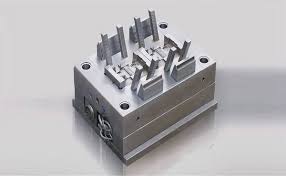In modern manufacturing, two areas are gaining significant importance: Low-Volume Plastic Production and Metals for Welding. Businesses today require flexibility, cost efficiency, and adaptability, which makes small-scale plastic manufacturing and precision welding essential. Whether you are in the automotive industry, medical devices, or consumer electronics, combining the right production methods and materials can give you a competitive edge.
This article explores how low-volume plastic production works, why it is important, and how metals for welding complement these processes in modern industries.
Understanding Low Volume Plastic Production
Low-volume plastic production refers to the manufacturing of a limited number of plastic components, typically ranging from a few hundred to several thousand parts. Unlike mass production, which requires high investment in molds and machinery, low-volume manufacturing is designed for efficiency and flexibility.
Advantages of Low Volume Plastic Production
- Cost Savings – Companies avoid expensive tooling and setup costs.
- Faster Prototyping – Ideal for testing new designs before mass production.
- Customization – Perfect for industries that require tailored solutions.
- Reduced Waste – Smaller production runs ensure minimal material wastage.
Applications of Low Volume Plastic Production
- Automotive Industry – Custom parts for limited edition vehicles.
- Medical Devices – Small batches of highly precise equipment.
- Consumer Electronics – Prototyping and short-run gadgets.
- Industrial Equipment – Specialized components not required in bulk.
Techniques Used in Low Volume Plastic Production
Several methods are used depending on the part design, material, and application:
Injection Molding
A versatile technique for producing small batches with high precision. Modified tooling allows cost-effective production without long lead times.
Vacuum Casting
Suitable for producing prototypes and functional testing parts with high-quality surface finishes.
CNC Machining
Offers precise plastic parts with tight tolerances, commonly used when strength and accuracy are critical.
3D Printing
The most flexible method for rapid prototyping, allowing design modifications with minimal cost.
Importance of Metals for Welding in Manufacturing
While plastic production is vital, industries also rely heavily on metals for welding to build strong, durable, and long-lasting structures. Welding is the process of joining metals using heat, pressure, or filler materials.
Common Metals for Welding
- Steel – The most widely used metal due to its strength and versatility.
- Aluminum – Lightweight and corrosion-resistant, ideal for aerospace and automotive.
- Stainless Steel – Popular in food, medical, and construction industries for its durability.
- Titanium – Strong yet lightweight, commonly used in aerospace and medical implants.
- Copper and Alloys – Excellent electrical conductivity, used in electronics and wiring systems.
Factors in Choosing Metals for Welding
- Strength requirements
- Corrosion resistance
- Weight considerations
- Thermal conductivity
- Cost efficiency
How Low Volume Plastic Production and Metals for Welding Work Together
Many industries combine plastic components and welded metal structures to create hybrid products. For example, in the automotive industry, lightweight plastic interiors complement strong welded metal frames. In consumer electronics, durable welded metal casings are paired with custom plastic parts.
Benefits of Combining Plastics and Metals
- Lightweight yet strong products
- Enhanced durability
- Cost-effective manufacturing
- Improved design flexibility
Future Trends in Plastic Production and Welding
The future of low-volume plastic production and metals for welding is moving toward automation, sustainability, and advanced materials.
- Smart Manufacturing – AI-driven quality control for precision.
- Sustainable Materials – Eco-friendly plastics and recyclable metals.
- Robotics in Welding – Automated welding systems for speed and consistency.
- On-Demand Production – Low-volume runs for startups and small businesses.
Conclusion
Both low-volume plastic production and metals for welding are essential in shaping modern manufacturing. While plastics offer flexibility, speed, and cost savings, metals provide strength, durability, and reliability. Together, they form the backbone of industries ranging from automotive and aerospace to healthcare and consumer products.


